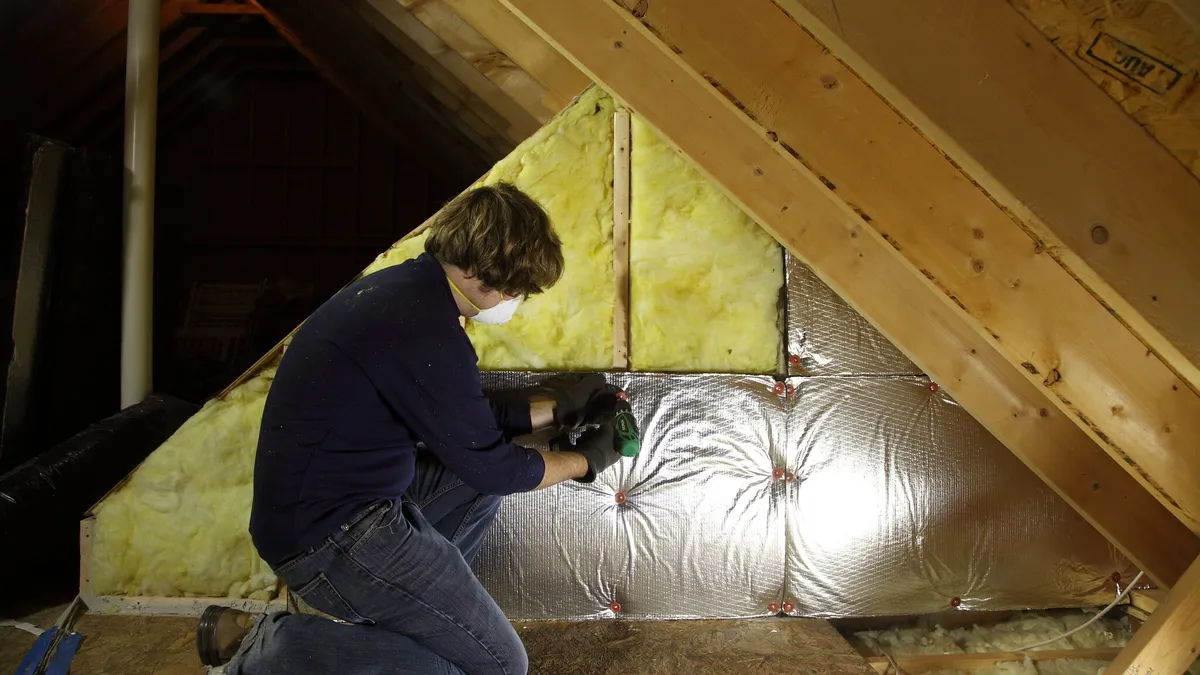Dive Brief:
- The New Hampshire House of Representatives on Thursday unanimously passed a bill to restore the state's ratepayer-funded energy efficiency offerings, after utility regulators gutted the NHSaves program in a controversial November decision.
- Energy efficiency advocates also say they are preparing to appeal the New Hampshire Public Utilities Commission (PUC) decision to the New Hampshire Supreme Court.
- The PUC in the fall rejected a three-year plan to boost efficiency rebates and incentives for homeowners and businesses, sending shockwaves through the state's clean energy economy. "So far, most of the contractors have come up with creative workarounds to avoid layoffs," but time is running short, said Sam Evans-Brown, executive director of the nonprofit Clean Energy New Hampshire.
Dive Insight:
Many New Hampshire energy efficiency contractors worked through the holidays, squeezing jobs into the last days of 2021 ahead of a funding cutoff, said Evans-Brown. Others have pivoted their businesses away from the state's efficiency programs to other construction work, he said.
The PUC's decision directed rates funding the efficiency programs be lowered to their 2017 levels by 2023.
Any new projects anticipated for 2022 "are currently paused," according to the NHSaves web site. All point-of-sale and retail rebates and incentives on lighting, appliances, equipment and HVAC systems closed in November, it says.
"Companies that are more dependent on these [efficiency] programs for their business model have said they can probably make it through January before they're going to need a light at the end of the tunnel," said Evans-Brown.
House Bill 549 would restore funding to the state's efficiency programs at 2020 levels, and is now heading to the Senate. It is being expedited, but observers say the legislation will also need tweaks in order to address the entire problem and may be reconciled with other legislation.
The PUC's November decision did more than just reduce funding. It also called for a return to "market-based energy efficiency" as opposed to the ratepayer-funded approach used by the state. On Friday, the commission rejected requests to reconsider its order, launching a 30-day period for efficiency advocates to appeal to the Supreme Court of New Hampshire.
"I actually am hopeful that the legislature will pass a bill that will moot the appeal by making clear that New Hampshire is committed to ratepayer-funded energy efficiency," State Consumer Advocate Don Kreis said. "But that remains to be seen."
The Senate may hold a hearing on the issue on Tuesday, said Kreis.
Along with the House bill, lawmakers are considering Senate Bill 270, which is a moderate income solar program with energy efficiency provisions tacked on at the end that represent a longer-term fix to the NHSaves funding cut.
While HB 549 sets the NHSaves budget, SB 270 would "roll back the clock," said Evans-Brown. It "basically expunges the PUC's Nov. 12 order."
There had been hope for a "very expedited process" where the House and Senate reached agreement on legislative language in advance, said Evans-Brown, but "those negotiations broke down."
Whether by legislation or court challenge, time is of the essence, say advocates. There has already been "grievous damage to the state's energy efficiency programs," Kreis said.
"The PUC made a lot of mischief with its order and it will be difficult and complicated to undo that," said Kreis. "I would say the earliest you could see a bill getting to the governor's desk for his signature or veto would be ... late February, maybe."
Regardless, Evans-Brown said the issue is heading to court. "There will definitely be multiple appeals to the New Hampshire Supreme Court, probably multiple filings from multiple parties," he said.















